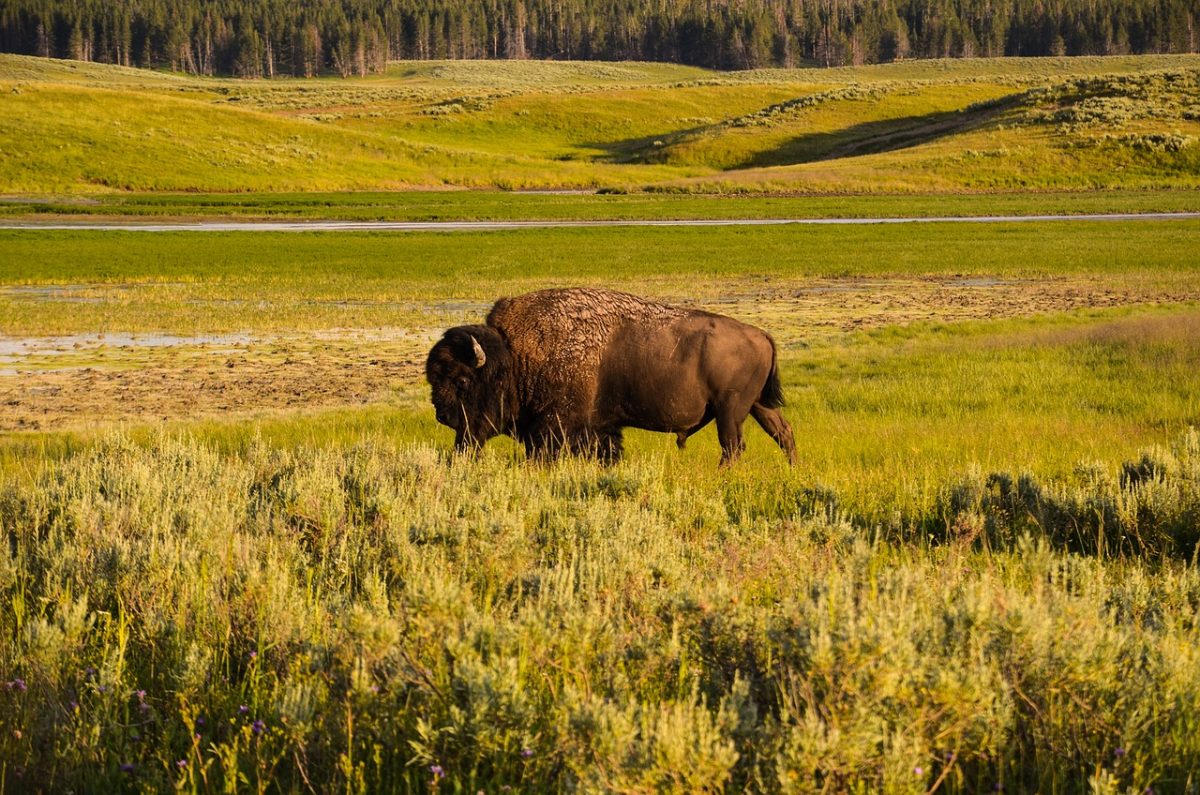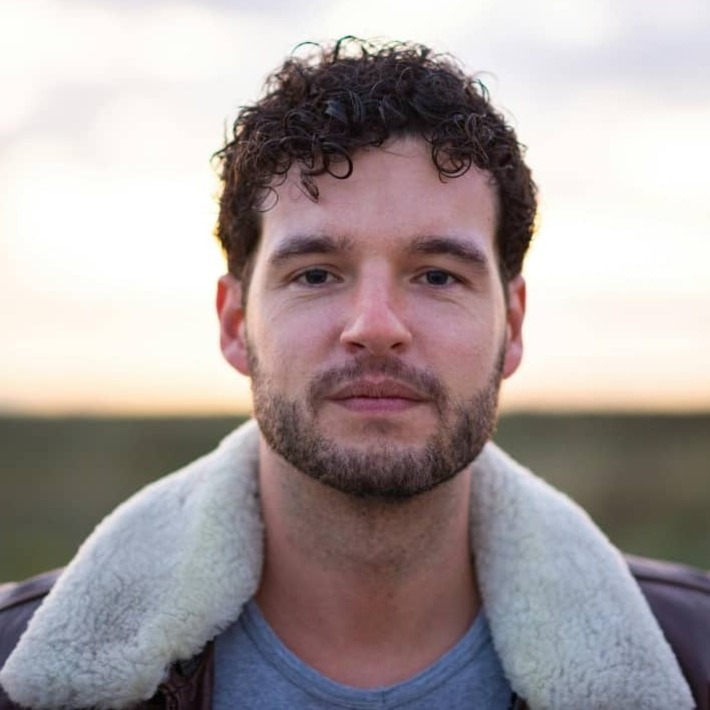The Great Plains - A Traveler's Guide
For ages, the Great Plains rolling hills and immense grasslands have been home to adventurers, artists, and outlaws, from legendary Sioux warriors Crazy Horse and Sitting Bull to Jesse James and Mark Twain.
Author:Sophia HarperReviewer:Liam JonesDec 04, 202430.3K Shares572.7K Views

For ages, the Great Plainsrolling hills and immense grasslands have been home to adventurers, artists, and outlaws, from legendary Sioux warriors Crazy Horse and Sitting Bull to Jesse James and Mark Twain. The Great Plains, which stretch west from Missouri, Oklahoma, Kansas, Nebraska, Iowa, South Dakota, and North Dakota, are frequently described as an expanse of uniformly flat cornfields, the "flyover states" of conservative "Middle American" beliefs.
Where Are The Great Plains?
Composed of portions of Texas, Oklahoma, Missouri, Kansas, Iowa, Nebraska, and North and South Dakota, the Great Plains outside of cities provide a glimpse of what America looked like before the arrival of the white man.
Recreational Activities
Hiking in Texas's Big Bend National Park; the Black Hills of South Dakota; and North Dakota's Theodore Roosevelt National Park.
Big Bend National Park, Texas; Valentine, Nebraska: Whitewater Rafting and Canoeing
Cycling: South Dakota's Black Hills National Forest; Nebraska's Katy Trail State Park
Dude Ranches offer ranch lifestyle vacations that allow guests to participate and pretend to be cowboys or cowgirls, while organized wagon drives offer a more imaginative and pioneering historical perspective, and rodeos transform extreme ranching techniques into a wild spectator sport.
If you get a rush from seeing a storm destroy things and are willing to accept the possibility that it will destroy you, join professional storm chasers in their search for fast-moving whirlwinds. From April through August, rides are at their fastest, beginning earlier in the south; the most intense period is from April to May.
Birdwatching: in Nebraska's North Platte River Valley, thousands of sandhill and whooping cranes roost. Crane Meadows Nature Center is the epicenter of crane 'twitching.'
What Is There To See In The Great Plains?
The great plains stretch from north to south, a rising plateau that stretches from the Mississippi River in the east to the Rocky Mountains in the west, where buffalo once roamed alongside Indians.
Texas
The boot-clad, gun-toting, Stetson-wearing, rodeo-riding, steak-eating, space-exploring cowboy embodies the ancient and new features of the plains exceptionally well. The Lone StarThough Texas is separated from its northern relatives by a beachy wilderness coastline, river adventure, and large city bustle in Dallas-Fort Worth, More information
South Dakota
The most gorgeous of the great plains states, Wyoming also boasts the most famous and tragic Native American history, as exemplified by the Sitting Bull and Crazy Horse legends.
Blackhills: Forested mountains nestled among the plains provide an alternative to cereal areas and verdant pastures.
Mount Rushmore National Monument: stunning, huge portraits of Presidents Washington, Jefferson, Lincoln, and Roosevelt are carved into the mountain's face.
While dead presidents may have their portraits carved into the rock, how about an entire Indian mounted on a horse at a height of over 500 feet? An amazing work in progress!
Hundreds of miles of hiking and cycling paths are available in the Black Hills National Forest.
Custer State Park is home to wild buffalo and other wild creatures, including mountain lions; in October, the large, hairy ones are rounded up.
Wind Cave National Park features a roughly 100-mile-long cave, as well as fauna and good hiking.
The Badlands are an odd alien rocky landscape with brightly colored sharp parts and deep crevices.
Badlands National Park offers strange hiking paths through bizarre rock formations, perfect for sci-fi fans.
Missouri
It is one of the most intriguing big plains states in terms of urban culture, with two large rivers, the Missouri and Mississippi, and the picturesque Ozark Mountains.
St. Louis is the location of the confluence of the Missouri and Mississippi rivers.
The Gateway Arch, with its Museum of Westward Expansion beneath it, is a must-see sight. The cuisine is excellent and varied, and there are numerous bars and clubs, as well as a small amount of theater and classical music.
Branson has dozens of theaters and many more performances over the summer season-entertaining to some, hideously tacky to others.
Kansas City offers Kansas-style barbeque establishments, various museums, and attractions, including the Jazz, Steamboat, Baseball, and Toy and Miniature Museums, as well as the Nelson-Atkins Art Museum and Country Club Plaza.
Oklahoma
The state has the country's largest Native American population, the most miles of Route 66, some mountains, and an excellent collection of museums.
With regular powwows and great museums, including the Southern Plains Indian Museum, Indian City, the National Hall of Fame for Indians, the Museum of the Great Plains, and Geronimo's Grave, this is a prominent destination for travelers interested in Indian life.
Oklahoma City: not the most aesthetically pleasing urban region, but with some revitalization and a few attractions-the National Cowboy and Western Heritage Museum, the State Museum, and the Omniplex.
Tulsa is mostly known for its architecture, which is typically art deco in style. The Tulsa Union Depot, the Union Methodist Church, and Oral Roberts University's evangelically spacious campus are all highlights.
Wichita Mountains: Wichita Mountains Animal Refuge and Quartz Mountain State Park, both of which offer hiking, climbing, and wildlife viewing opportunities.
Iowa
Rural life overload is possible, but the area is protected from tourism disaster by being picturesque and featuring some visually appealing bridges.
In Madison County, seven bridges made famous by a novel or film garner the most attention during the Seven Bridges Festival.
Grant Wood's American Gothic House is located in Eldon. Neal Smith National Wildlife Refuge for an environmental study of pre-farm prairie habitats, i.e., how the plains were when Native Americans and buffalo roamed freely.
Amana Colonies for authentic German cuisine, artisan communities, and an Amana History Museum are all available.
Des Moines is an underwhelming capital city on the whole, but the Living History Farms contain some decently restored historic farms.
Dyersville is well-known for its charming "Diamond of Dreams" baseball field and the National Farm Toy Museum.
North Dakota
This frigid, northern state on the border with Canada is covered with fertile plains. There are few tourist attractions, although the parkland prairies are excellent for hiking and plains wildlife viewing.
Theodore Roosevelt National Park is an excellent park for hiking or horseback riding since it contains a large area of protected tall grass plains land and accompanying species such as bison, prairie dogs, and numerous birds.
Pay a visit to the National Buffalo Museum in Jamestown to observe the exceptionally rare white buffalo, dubbed White Cloud.
Fort Abraham State Park features a fully restored Cavalry fort and Indian dwellings.
Nebraska
A rather monotonous environment, but with some interesting cities and pioneering history for the aficionado, some decent whitewater options, and excellent for pink-flying birds.
Whitewater rafting is the perfect Valentine's Day activity.
Omaha and Lincoln: Visit the historic Old Market, the Joslyn Art Museum, and the birthplaces of Malcolm X and Gerald R. Ford in Omaha, as well as the Strategic Air Command museum on the route to Lincoln, where the Capitol building is worth a look.
Numerous sites along the Pioneer Trail include Scott's Bluff National Monument, Fort Kearny State Historical Park, Ash Hollow State Historical Park, and Chimney Rock, as well as the Buffalo Bill Ranch State Historic Park.
Kansas
Tornado central; even Dorothy from Oz was whisked away by one here, among the limitless acres of cereal crops, but with little more to offer international tourists.
Visit Wichita, Kansas, for the Indian Center Museum's Intertribal Pow-wow and Old Cowtown's wild west entertainment.
Liberal and Sedan are priceless if you're a true Wizard of Oz fan; see the Land of Oz at the Yellow Brick Road in Liberal and another Yellow Brick Road in Sedan.
Dodge City is well-known for the Boot Hill Western Museum and the Santa Fe Trail.
Festivals And Events Of Significant Magnitude
- Oklahoma City, Oklahoma, April, Festival of the Arts.
- Sedalia, Missouri, Ragtime Festival, June
- June, Oklahoma City, Oklahoma's Red Earth Native American Cultural Festival
- Sturgis Rally and Races in August in Sturgis, South Dakota (tens of thousands of Harley Davidson fans).
- Sedalia, Missouri, August, Missouri State Fair.
- Charlie Christian Jazz Festival, Oklahoma City, Oklahoma, October.
- November-Oklahoma City, Oklahoma-World Championship Quarter Horse Show
- Oklahoma City, Oklahoma, December Futurity of World Barrel Racing
Downsides
- The unending fields become tedious after a while, but the monotony itself may be rather fascinating.
- Distances between excellent attractions are an issue unless you prefer long self-drives or a well-organized trip; the west and east freeways will put you to sleep faster than Wyatt Earp's draw.
- The weather fronts collide here, resulting in some unusual outcomes-tornado alley in the spring and blizzard central in the winter.
Climate
The best months to visit are April-June and September-October in the southern states; however, April-May is tornado season, so you can try July-August, but the heat is intense in the southern states.
December through February are the worst months, with heavy rain and snow in some areas.
Conclusion
Additionally, the Plains share an interesting and complex history. Once inhabited by nomadic tribes such as the Sioux and a few hardy French traders, the region saw significant US colonization only after the Civil War; by the 1880s, white settlers' systematic destruction of the region's vast herds of bison presaged the Plains Indians' virtual extinction, though their ancestors retained a significant presence in South Dakota and Oklahoma (the latter was settled primarily by tribes removed from the east).
Having a car is practically necessary for exploring the Great Plains, where distances are great, roads are straight and apparently infinite, and populations are rare.

Sophia Harper
Author
Sophia Harper’s photography acts as a portal to the soul of the places she visits. Drawn to South America’s landscapes and cultures, she has spent years capturing everything from the majesty of ancient ruins to the vibrancy of urban streets.
Sophia’s work isn’t just about documenting moments; it’s about evoking the emotions and stories behind them. A dedicated photographer, she has worked with local communities across South America to capture their rich cultural narratives through her lens.

Liam Jones
Reviewer
Liam Jones has made it his mission to prove that adventure doesn’t need a hefty budget. Having traveled to over 40 countries, he specializes in finding affordable ways to experience the world, from the best street food in Bangkok to hidden gems in Lisbon.
Liam’s travel tips have reached thousands of readers, empowering them to see the world on a shoestring budget without sacrificing quality. With a deep passion for local cultures, he continues to share his travel hacks, ensuring adventure remains accessible to all.
Latest Articles
Popular Articles
